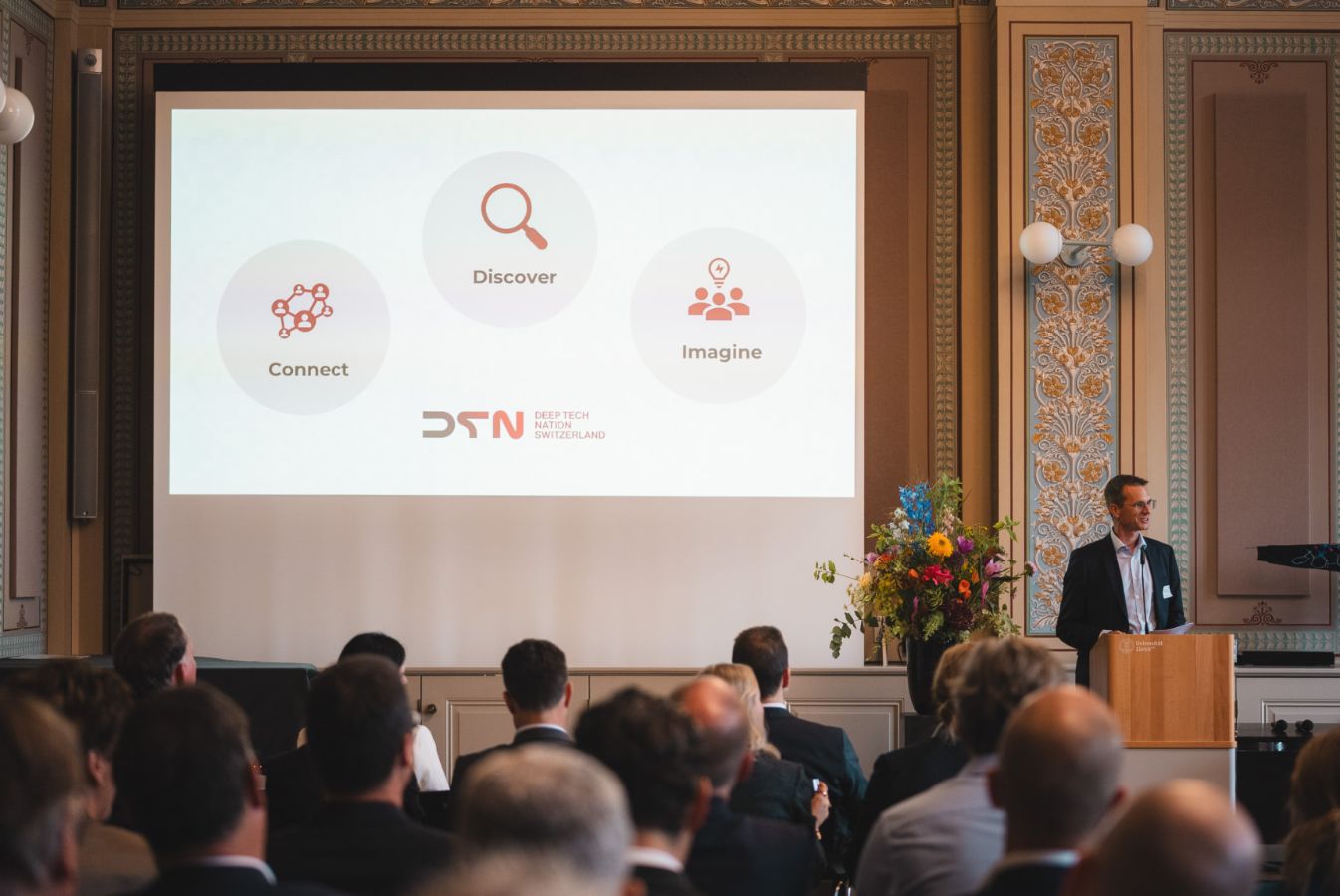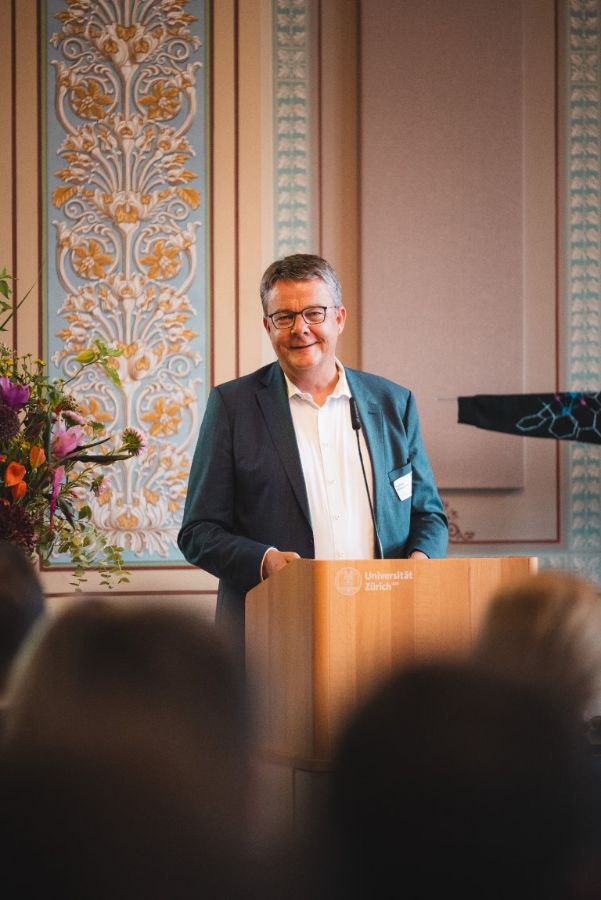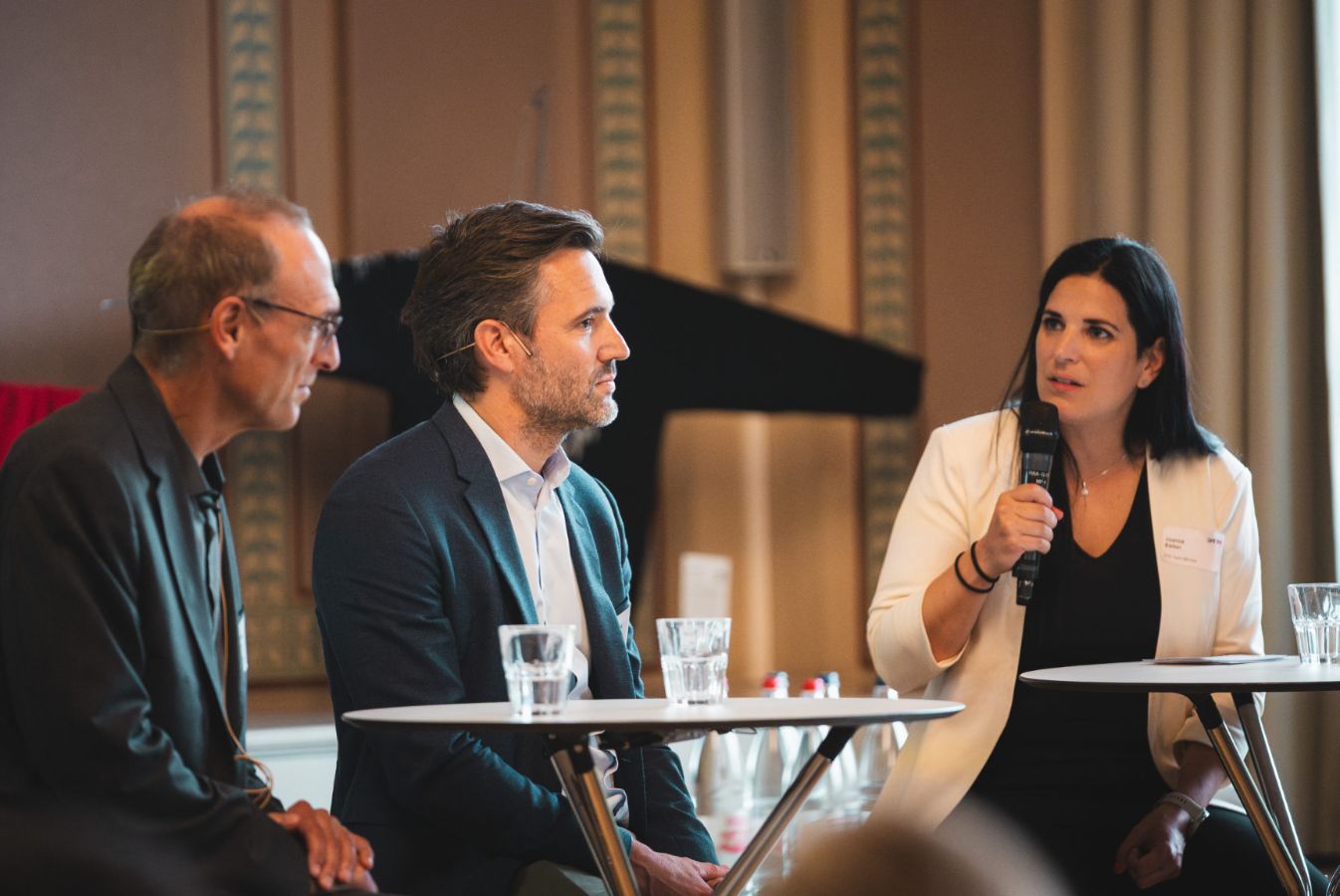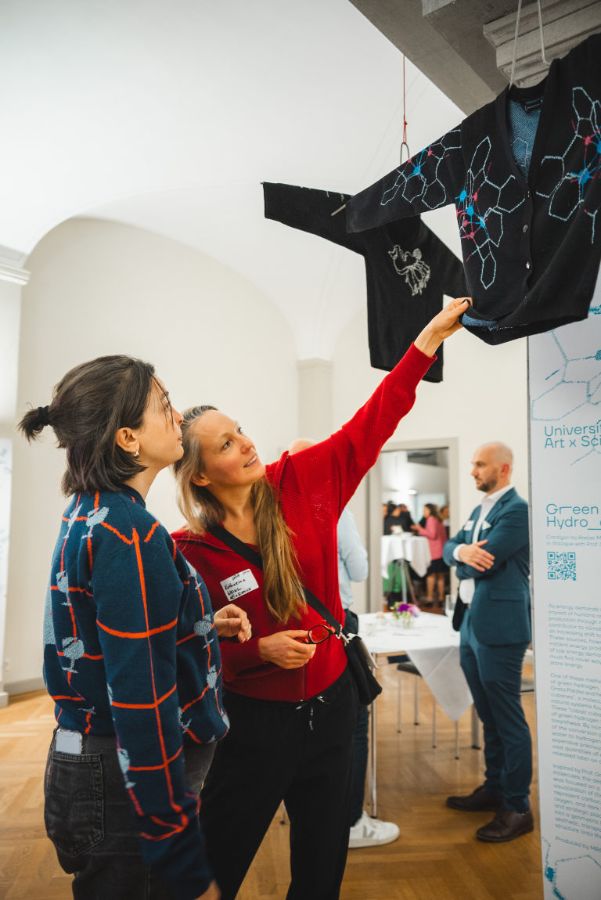Think Big
Switzerland has long been a hotspot for innovation, ranking at the top of the Global Innovation Index for the past 14 years. A recently published report by the Deep Tech Nation Switzerland Foundation (DTN) highlights the strength of Switzerland’s education system and world-class universities. The report made waves beyond the borders of Switzerland: Forbes magazine recently described Switzerland as a “deep tech beacon in Europe” and drew parallels between the small country and Silicon Valley, hailing its global reputation as a hub for deep tech, medtech and advanced manufacturing.
Deep tech refers to innovations rooted in scientific research, for example, in the life sciences, robotics or artificial intelligence. According to the report, Swiss deep tech businesses have created more than USD 100 billion in value.
Venture capital and high-tech jobs
But there’s still room for improvement. In his talk at UZH, Christoph Aeschlimann, CEO of Swisscom and Chair of the DTN Board of Trustees, said: “Too many of our most promising ventures get acquired or sold too early. And then the jobs, the IP and the value they create all too often leave Switzerland.”
This is why the Deep Tech Nation Switzerland Foundation was created last year. DTN aims to make it easier for startups to access venture capital and, in this way, support Switzerland’s growth into a leading deep tech nation. In times of technological dependencies and geopolitical battles, this is of strategic importance for Switzerland, said Aeschlimann. The foundation is committed to increasing capital investments in Switzerland with the goal of keeping the country at the forefront of innovation and creating more high-tech jobs.
Dream big
Joanne Sieber, CEO of DTN, also called on Switzerland to be more ambitious in deep tech and have the confidence to dream big. “Behind every technology, there are individuals who took risks, faced setbacks and didn't just settle for ‘good’ but who said, ‘this is going to be great’,” she said to applause from an audience made up of representatives from business, research and politics.
Building bridges and promoting innovation
In his talk, UZH President Michael Schaepman, who recently joined the DTN Board of Trustees, highlighted the University of Zurich’s strong ties to society and emphasized the key role of university research and teaching in innovation. “Deep tech is not just a buzzword. It’s a bridge between the frontiers of research and the challenges of our time,” Schaepman said. A well-orchestrated innovation ecosystem that brings together universities, corporations, public organizations and investors is essential for innovation projects to thrive, he added.
According to Schaepman, there is a growing demand among UZH students and staff to launch their own entrepreneurial activities – and UZH is meeting this demand. The university promotes entrepreneurial skills, supports the transfer of ideas and insights into practice, and plays an active role in accelerating knowledge transfer to business and society. Since 1999, more than 160 spin-off companies based on licensing and patent registrations have emerged from UZH, a testament to this commitment.
Entrepreneurial spirit and wearable art
In the panel discussion following the talks, two entrepreneurs shared their journeys. Andreas Thiel, co-founder of u-blox, and Samuel Mueller, co-founder and CEO of Scandit, spoke about founding their startups and the obstacles they had to overcome along the way.
Another highlight of the event was the first presentation of UZH’s project nmesh. A knitwear collection created by artists, designers and UZH researchers was exhibited. The artists responded to insights from disciplines such as history, economics, infectious disease research and astrophysics, translating scientific knowledge into tangible, narrative forms. Like deep tech, nmesh is about transformation. While deep tech transforms research into startups, nmesh turns science into art. The collection will be presented to the public on 1 September 2025 at the Mode Suisse fashion event at Kunsthaus Zürich.





